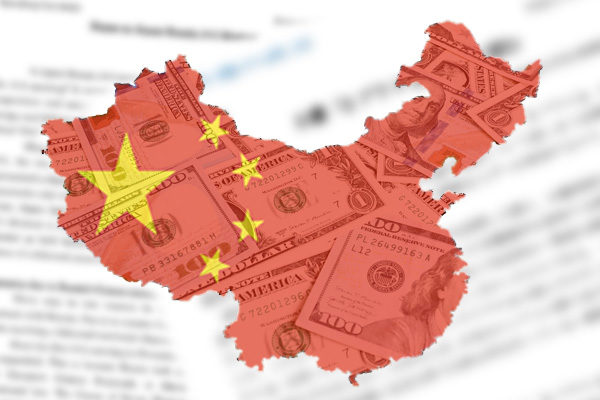Russia is dodging Western financial sanctions. Its consumer price inflation rate is now in the 7% range, lower than the 8% range before the Ukraine war. Behind the low rate is support from China.
China’s exports to and imports from Russia have increased by more than 60% from levels before the war. Across the long Sino-Russian border or via third countries, China provides Russia with not only daily necessities, but also semiconductors and other high technology products for military and civilian use, military-related equipment, and trench digging machines.
Russia can earn foreign currencies by using China’s yuan payment system and Hong Kong as an international financial market. As a result, the Russian ruble has gradually appreciated against the U.S. dollar since last autumn, in contrast to the Japanese yen that has been acceleratingly depreciating against the dollar.
High-priced crude oil supports Russia’s war chest
In fact, China has been buying Russian energy resources at far higher prices than international market prices, contributing to Russia’s financial resources for the war. Russian crude oil put under a Western trade embargo is sold on the international market at lower prices than for the North Sea Brent crude of the same grade. According to China’s trade statistics, its Russian crude oil imports totaled $135.9 billion from March 2022 to May 2024. According to my calculations, such imports at the international market price turn out to be $115.5 billion, meaning that China paid $20.4 billion or 18% more than indicated by the international market price for Russian crude oil.
According to the Stockholm International Peace Research Institute, Russia’s annual increase in military spending was $36.4 billion in 2022 and $7.1 billion in 2023, for a total of $43.5 billion. China paid $17.6 billion more than indicated by the international market price for Russian crude oil over two years from March 2022 to February 2024. Given these figures, it can be assumed that more than 40% of the cost for the Ukraine war was covered by China’s Russian crude oil imports at a higher price than the international market price.
This fact alone shows the enormous effect of a “no limits” partnership promised by Chinese President Xi Jinping to Russian President Vladimir Putin. A communique of the Group of Seven leaders at their recent summit in Italy expressed “deep concern” about China’s support to Russia and called for China to halt the transfer of dual-use materials to Russia. However, such business-as-usual rhetoric will never move the Xi government.
China’s weak point
A trump card to rein in China’s support to Russia is to cut off dollar-denominated transactions for China’s major commercial banks that are involved in Russia’s payments for military-related materials, oil, and other goods. The Xi government fears such financial sanctions most, but the U.S. Biden administration has been circumspect about such sanctions for fear of a negative impact on U.S. financial markets.
China is taking advantage of Russia’s upper hand in Ukraine to intensify an offensive against Taiwan, Japan’s Senkaku Islands, and the South China Sea. For Japan, the Ukraine war is no longer just a problem for somebody else. Japan’s government of Prime Minister Fumio Kishida should determinedly push the United States to impose financial sanctions on China.
Hideo Tamura is a Planning Committee member at the Japan Institute for National Fundamentals and a columnist for the Sankei Shimbun newspaper.


